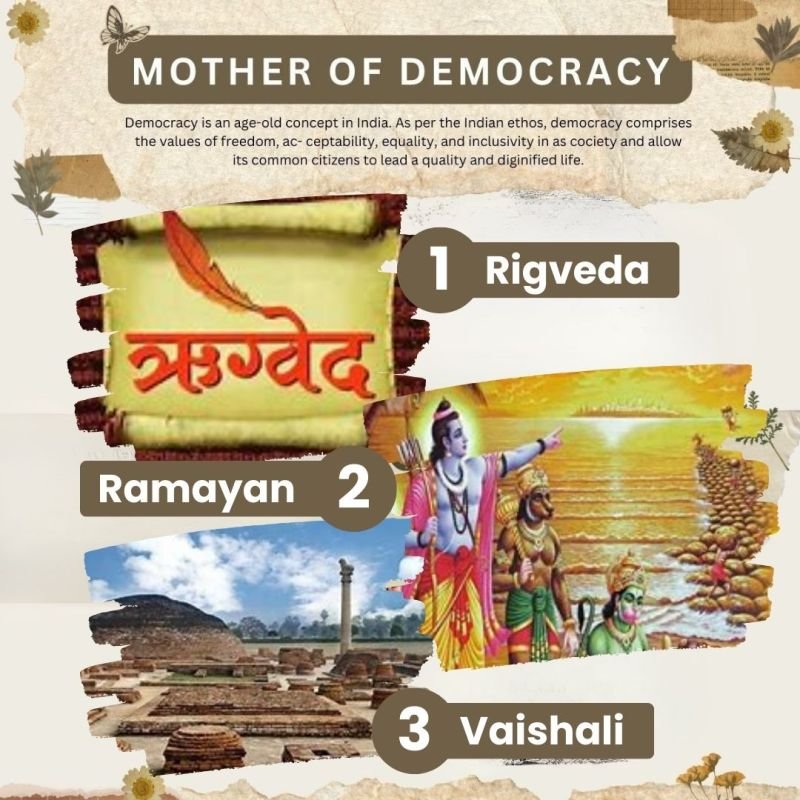

𝗠𝗼𝘁𝗵𝗲𝗿 𝗼𝗳 𝗗𝗲𝗺𝗼𝗰𝗿𝗮𝗰𝘆
Democracy is an age-old concept in India. As per the Indian ethos, democracy comprises the values of freedom, acceptability, equality, and inclusivity in a society and allow its common citizens to lead a quality and dignified life. The Rigveda and the Atharvaveda, the earliest available sacred texts refer to participatory institutions like the Sabha, Samiti, and Sansad, the last term being still in currency denoting our parliament. The Ramayana and the Mahabharata, the great epics of this land, also talk about involving people in decision-making. There are also found in Indian textual instances that the authority to govern is earned through merit or common consensus and is not hereditary. There has been constant discourse on the legitimacy of the voter in various democratic institutions such as the Parishad and Samiti. The Indian democracy is truly a festive proclamation of veracity, cooperation, collaboration, peace, sympathy, and collective strength of the people.
Did you know that ancient city of Vaishali is the birthplace of democracy. Long before the modern democratic systems, Vaishali in Bihar was one of the Mahajanapadas, where one of the world’s first republics existed. This ancient city was known for its early democratic principles, where rulers were elected by the people.
